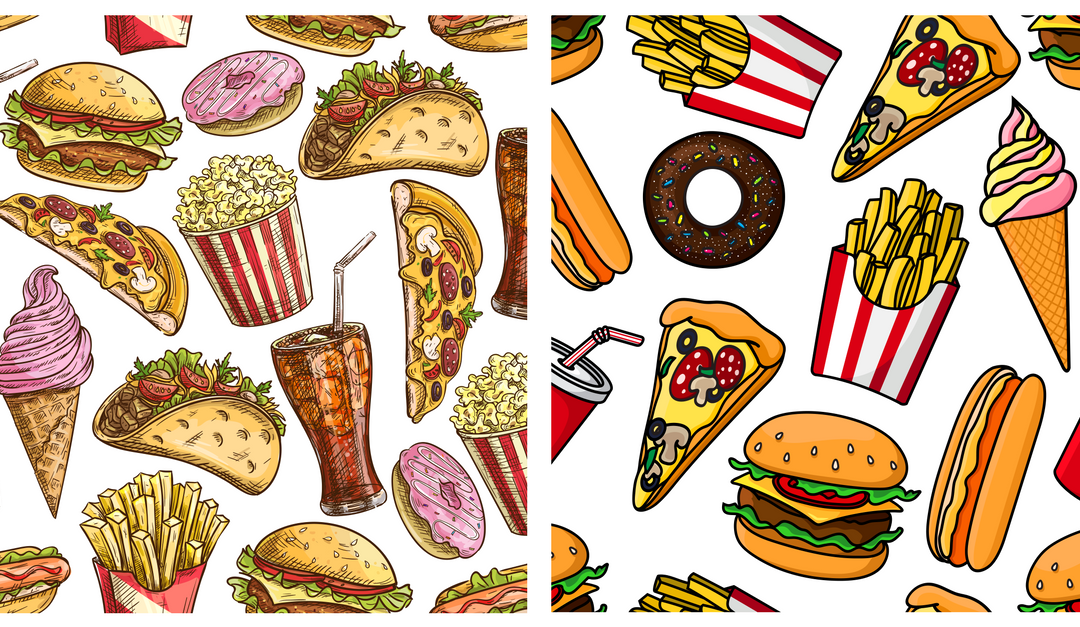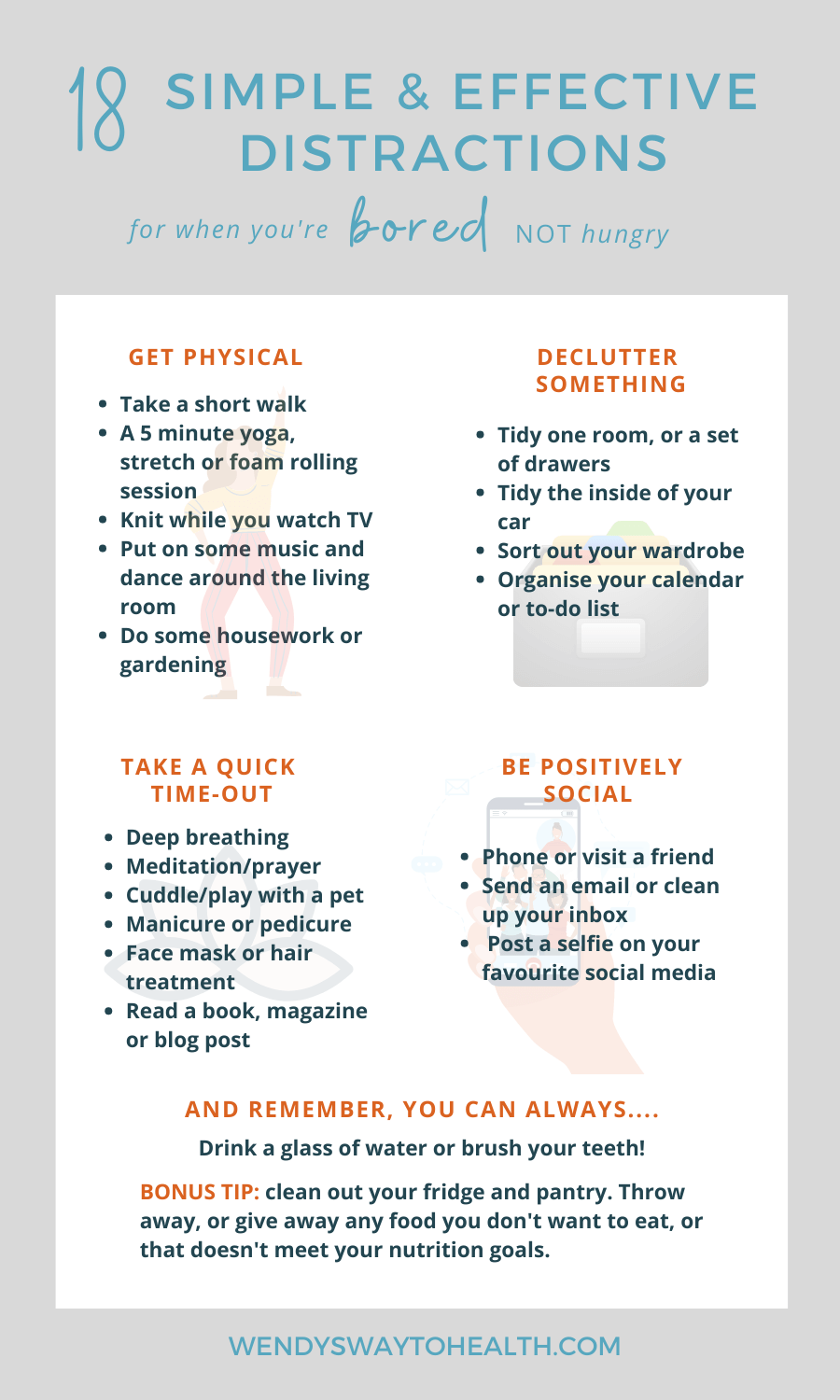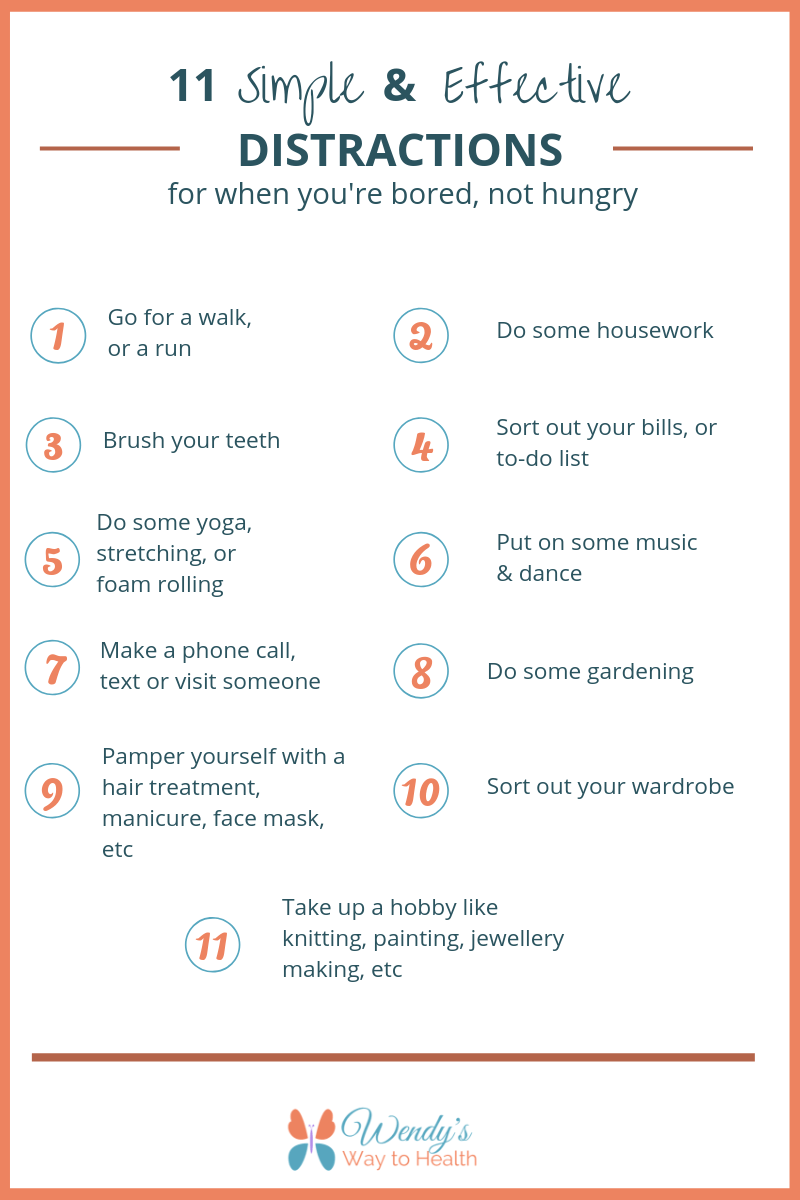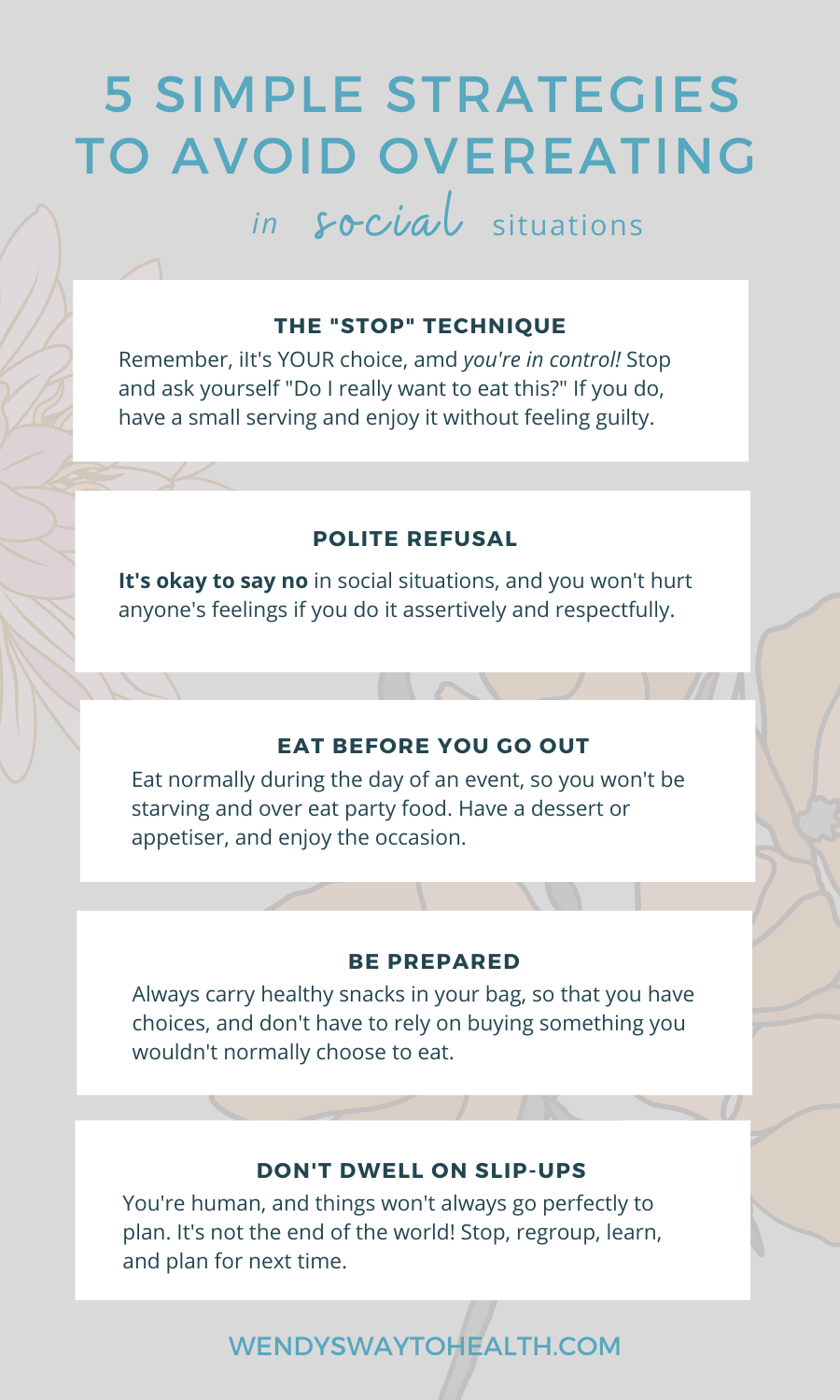Staying on track: dealing with temptation, and strategies for success
How do you stay on track with a healthy eating plan? It can be tricky, no matter how well prepared you are. We all ‘fall off the wagon’ from time to time, and for all sorts of reasons. It’s totally normal.
How we deal with these percieved slip-ups and lapses is what’s important. Obviously, your mindset is a key factor.
Making healthy eating part of your lifestyle, instead of being on or off a ‘diet’ is also hugely important.
Read my series about how to easily overcome the excuses we make for not eating healthy. Start with PART 1 HERE
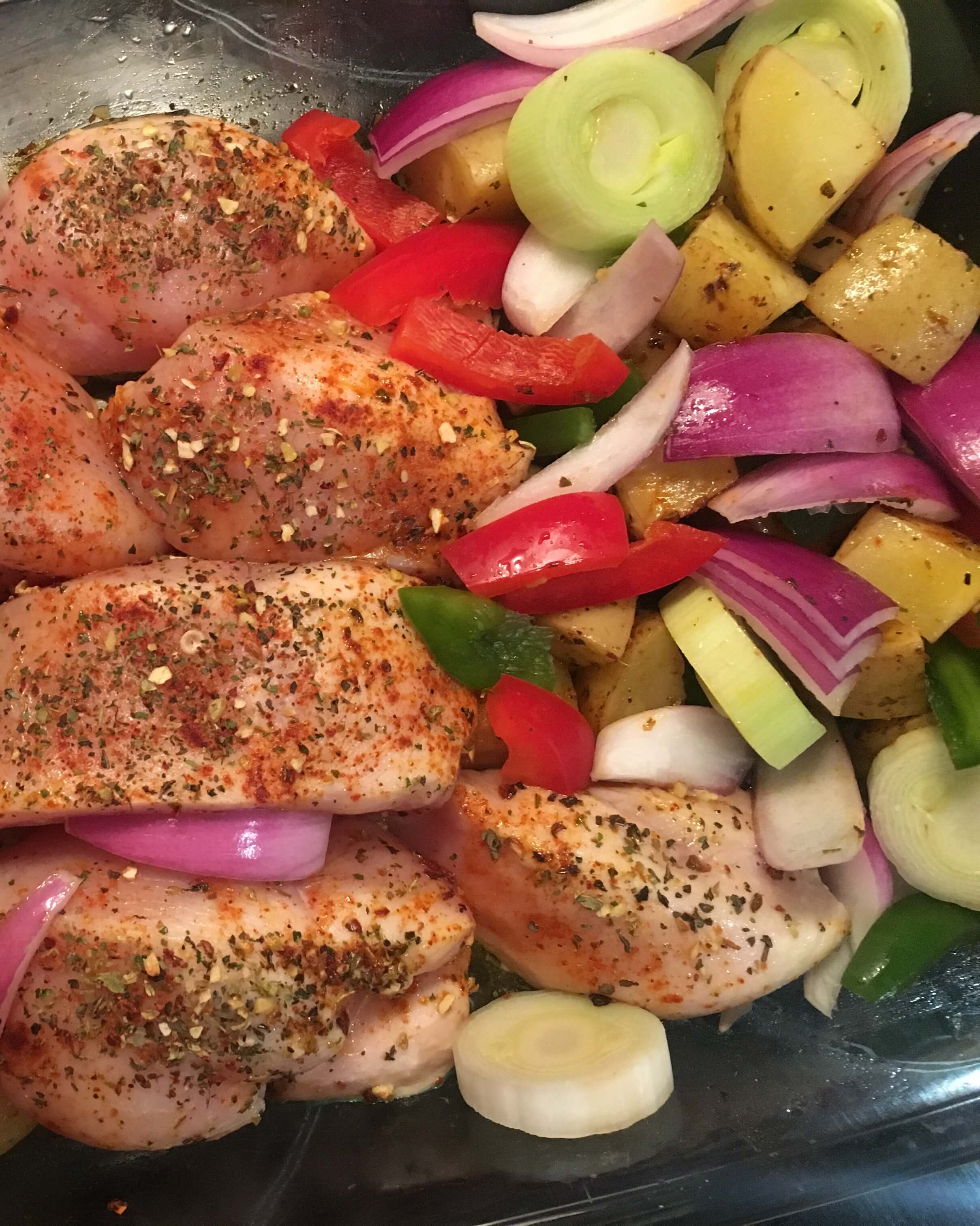
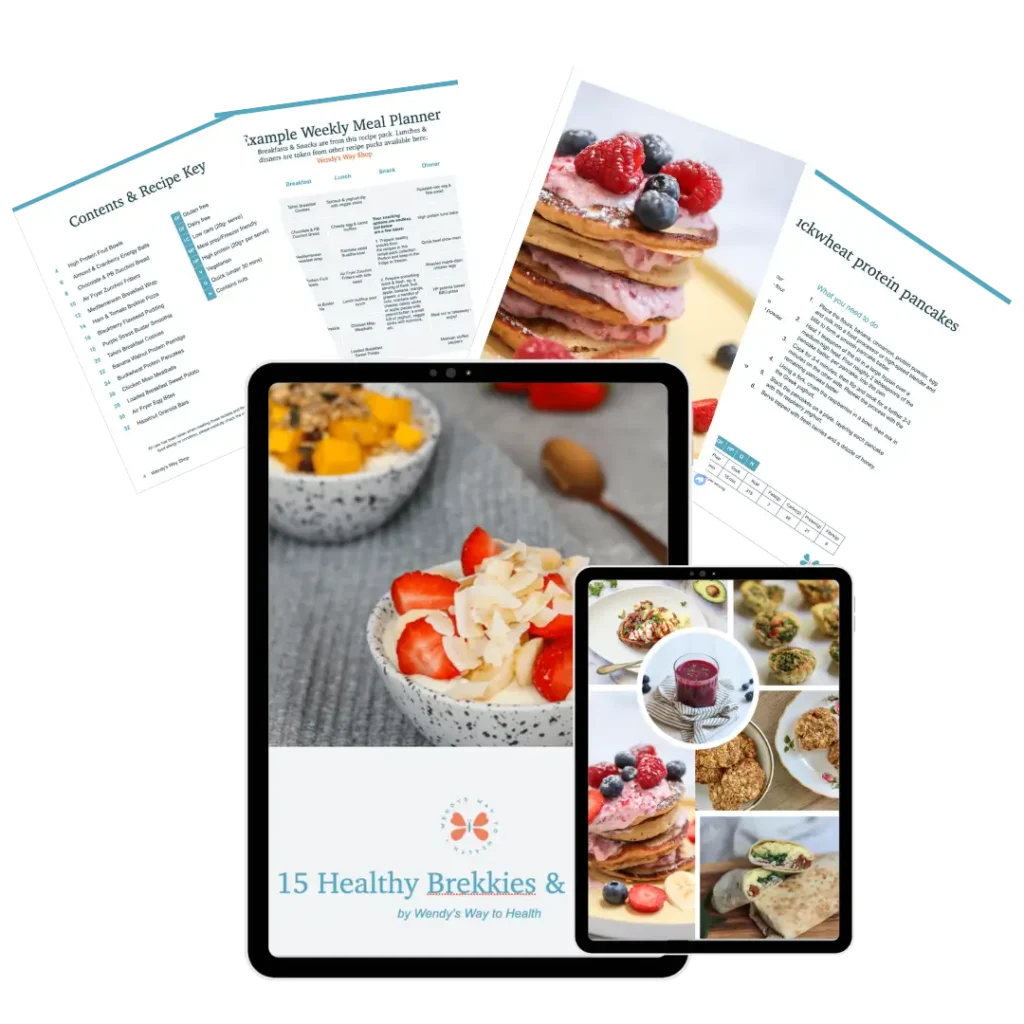
Free Healthy Recipe Pack
Download 15 of my best breakfast and snack recipes
Diets don’t work
Well not in the long term, anyway. I’ve said this many times already and I’ll keep saying it until everyone gets it! Most ‘diets’ simply aren’t sustainable for very long.
Of course you’ll have some short-term success when you cut out food groups, or restrict how much you eat of certain foods.
The one thing all diets have in common is that they reduce the number of calories consumed and create a negative energy balance.
Check out this post about the PITFALLS OF COUNTING CALORIES.
Where you get into trouble is when your body adapts, and your weight loss inevitably plateaus. Unfortunately, what happens next is usually further restriction to continue getting the desired result.
This cycle is simply impossible to maintain, not to mention the havoc it wreaks on your body.
Usually the next step is that we quit the diet, and then feel like we’ve failed. In reality, it’s actually the diet that failed you, not the other way around.
You can learn more in this post: 9 SIMPLE TRUTHS ABOUT DIETING.
What to do instead? Eat good food most of the time
The truth is that if you want to ‘stay on track’ and maintain a healthy weight, you need a diet plan that you can follow for the rest of your life. I’m using the dictionary definition here of the word diet, which is “the kind of food that a person, animal or community habitually eats.”
In a nutshell, sticking to your plan is easier when you eat a balanced diet of mostly real, whole foods, and allow yourself treats sometimes.
Nobody’s perfect, you probably won’t follow your plan 100% all the time. As I said earlier, that just means you’re human, like the rest of us!
When you’re armed with the right tools though, you’ll be able to confidently deal with distractions and temptations when they occur.
You’ll learn to forgive yourself and move on. Actually, sometimes, you’ll even plan for it!
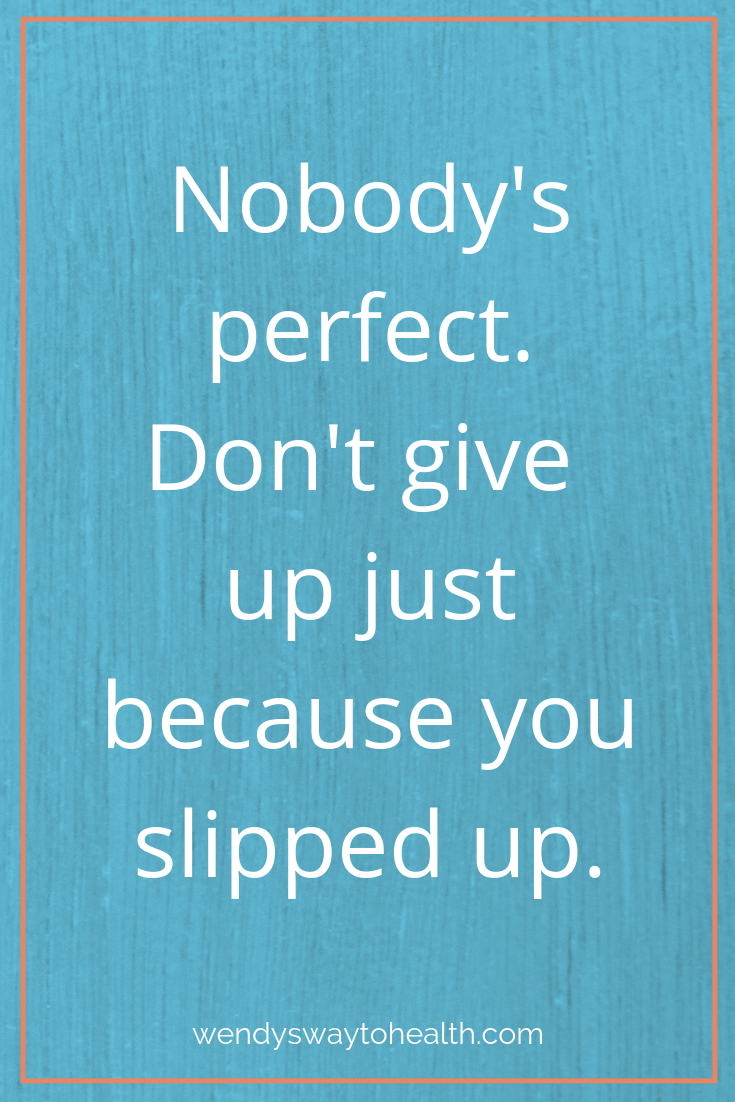
Staying on track in social situations
The most important thing after feeling like you’ve slipped up, is not to use it as an excuse to completely give up. Forgive yourself and don’t feel guilty or remorseful.
Instead of beating yourself up, learn from the experience by taking note of why it happened, so you can deal with the same situation more confidently next time.
Who were you with? Where and when? Has it happened before? When you analyse the situation, you’ll find triggers for your behaviour.
You may well find yourself doing it again, and that’s perfectly okay, as long as you learn a bit more about yourself each time.
Below I’ve listed my favourite strategies for dealing with the possibility of overeating foods you really don’t want to eat in social situations.
1. The stop technique
Stop and think before you eat! Take a moment and remind yourself that you have a choice. You are in control. Ask yourself some questions, like “do I really want to eat this?” or “if I eat this now, will I be happy with myself later?”
If you decide that you really do want to eat the food, then go ahead! Give yourself permission, have a small serving and take the time to really enjoy it. Then move on, and feel good about the decision you made.
2. Polite Refusal – Just Say No
People can be very insistent when they’re offering you food, for all sorts of reasons. They may be projecting their own feelings onto you, or it might just be part of their culture to treat food as love.
Remember that it’s okay to say no in social situations, when you want to, and you won’t hurt anyone’s feelings if you do it respectfully and assertively.
For example, you can politely refuse dessert by saying something like “I really enjoyed my meal/dinner and I’m actually full, thank you. Maybe next time?”
Ask if you can take some home for later.
Sometimes you might find that taking a small portion is the easiest way to avoid drama.
You should always feel good about the decision you choose to make. How other people feel, or act is not your responsibility.
Just make sure your refusal is genuine and always offer a compliment.
3. Eat Before You Go
Eating normally during the day before you attend an event or function works best to ensure you don’t overeat.
Don’t make the mistake of starving yourself to ‘save’ your appetite or calories, it’ll usually backfire.
If you’re satisfied instead of starving when you get to the party, you’ll be able to indulge in just one or two small things.
Even better, when the treat is actually part of your weekly plan, you won’t feel like you’ve ‘given in’ to temptation. This is my favourite way to ‘stay on track.’
4. Be Prepared with Snacks
Like a good boy scout, if you plan ahead, you’ll have a much greater chance of success. Always have a healthy snack like a piece of fruit, some nuts, or an energy bar in your bag or car for when you need it.
Then if you’re out longer than intended, or find yourself somewhere without healthy choices, you won’t be tempted to buy something you wouldn’t normally choose.
5. Whatever happens, deal with it!
As I said above, things won’t always go according to plan, and that’s okay.
If you really don’t like how you react or behave in a particular situation, you can learn how to change it.
Write down everything you can think of: where and when it was, who was there, what actually happened, if it’s happened before, if it was the same or different.
The more detailed you can be, the easier it will be to find any commonalities, or potential triggers. Then you can work on a different way to handle the situation in future.
Above all, be kind to yourself, and remember that we’re all works in progress.
Distractions for when you’re bored, not hungry
Sometimes you might simply need a distraction to occupy your thoughts until a food craving goes away, because you’re not actually hungry, you’re bored.
Or maybe you’ve developed a comfortable habit, like mindless snacking while watching TV after dinner, that you’d like to change.
Chances are you had plenty to eat for dinner and you’re not hungry at all, it’s just become a habit.
You know what I’m talking about: the biscuits, chocolate, or chips/crisps that come out after dinner when you’re watching TV.
If this after dinner habit is one you’d like to stop, the easiest thing to do is distract yourself with something else.
A lot of women say that giving themselves a manicure or painting their nails works brilliantly, as you simply can’t eat with wet nail polish!
Brushing your teeth when you’ve finished eating is another good one that a lot of people like to use. You won’t want to eat after you’ve just brushed your teeth.
Or you could learn a new hobby like knitting, crochet or needlepoint. This keeps your hands & your mind busy, and can easily be done while sitting in front of the telly.
Instead of mindlessly munching on junk, you’ll learn a valuable new skill. I once had a client who knitted squares for a local charity scheme that make blankets for homeless people. What a great idea, huh?
18 easy distractions
Here’s a list of some simple things you can do instead of eating, when you really don’t want to. A lot of them are lovely little treats you probably don’t do as often as you’d like anyway!
Find just one or two techniques you think will work for you, or be creative and make up your own!
1. Take a short walk.
2. A 5-minute yoga, stretch, or foam rolling session.
3. Knit while you watch TV.
4. Put on some music and dance around the living room.
5. Do some housework or gardening.
6. Tidy one room, or a set of drawers.
7. Clean the inside of your car.
8. Sort out your wardrobe.
9. Organise your calendar or to-do list.
10. Practice deep breathing for 5 minutes.
11. Meditate, say some affirmations or pray.
12. Cuddle or play with a pet.
13. Give yourself a manicure or pedicure.
14. Treat yourself to a face mask or hair treatment.
15. Read a magazine, blog post or a chapter of a book.
16. Phone or visit a friend.
17. Catch up on emails, or tidy your inbox.
18. Post a selfie on your favourite social media.
Bonus tip: sometimes when you feel hungry, it’s because you’re a little bit dehydrated. So drink a glass of water, wait 10 minutes and see how you feel.
Remember, when all else fails, you can always brush your teeth!
And if you’ve got more time on your hands, clean out your fridge & pantry. Throw away, or give away any food you don’t want to eat, or that doesn’t meet your nutritional goals.
Download the list summary and the overeating strategies below
(No email required, just grab them for free, because I’m a nice person!)
Healthy recipe packs & meal plans
designed to make it easy for you to plan and prepare delicious healthy meals

50 recipes in each pack: high protein, 5-ingredient or healthy desserts & snacks
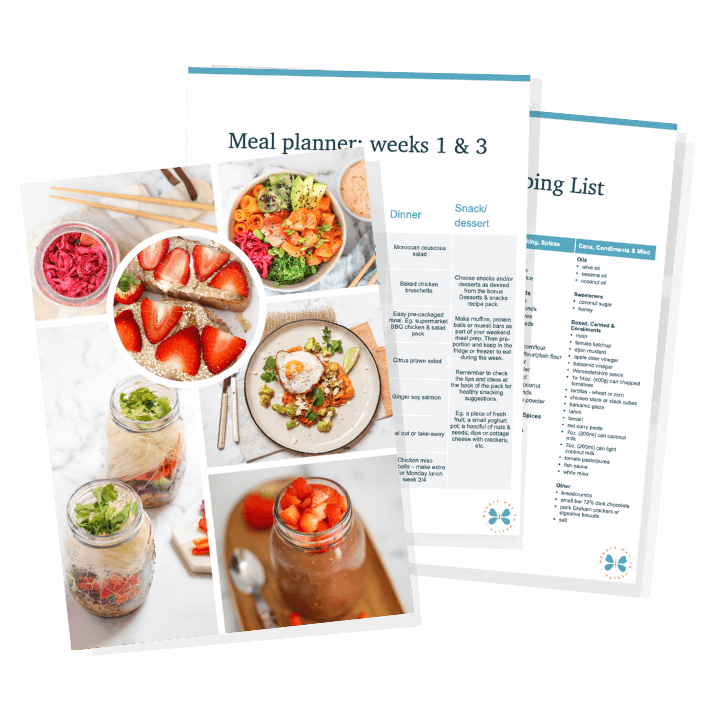
Done for you weekly meal planners, shopping lists and blank templates
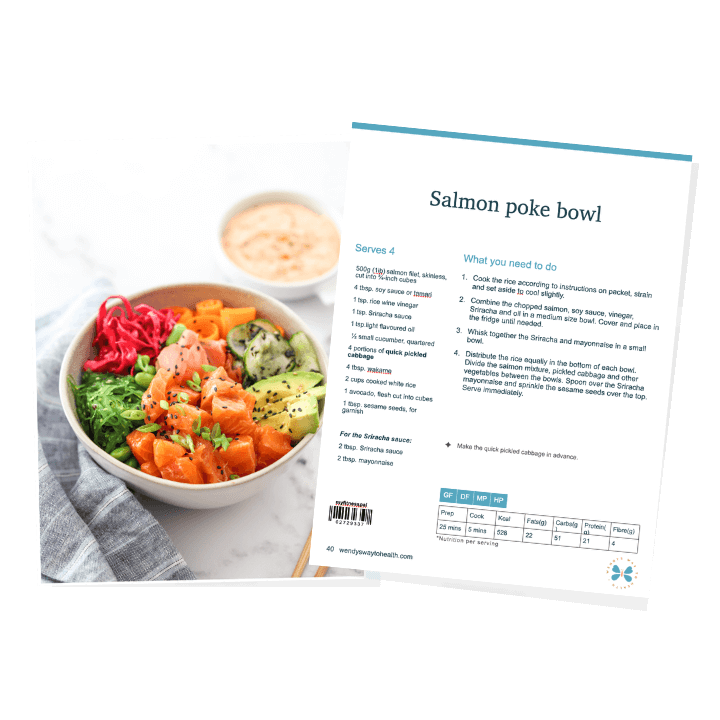
Detailed nutrition info on every recipe, plus MFP barcodes for easy tracking

